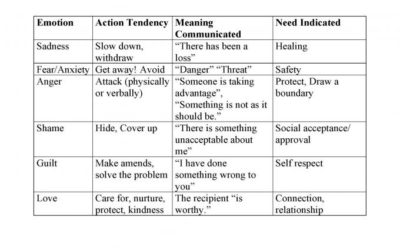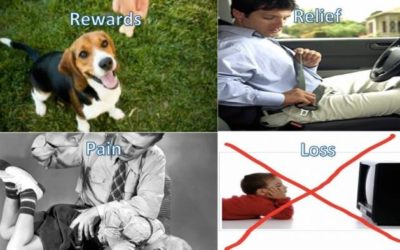practices for maintaining your emotional self care
skill weekly
WHY NOW? TWO COMMON REASONS FOR SEEKING HELP
WHY NOW? TWO COMMON REASONS There are usually two broad reasons people come to my office. It doesn’t really seem to matter what the categorical diagnosis is. After all, mental health diagnoses are just a cluster of symptoms. Five out of nine usually, which say...
Emotion Regulation for Anger
Compassion skills are central to Emotion Regulation. Particularly as Opposite Action skill for emotions related to anger (irritation, frustration, annoyance). Most of the time, opposite action is just that, an action. But, particularly with feelings of anger,...
The Problem of Secondary Emotions
Secondary Emotions: An emotion about an emotion The relationship, beliefs, and attitudes we have towards our emotional experience set us up for secondary emotions and emotion dysregulation. In the last blog (Emotion Regulation (Dys-Regulation) 101) we discussed how...
Emotion Regulation (and Dys-regulation) 101:
Emotion Regulation (and Dys-regulation) 101: Emotion Regulation happens when our thoughts-emotions-actions are in a balanced state. We are well regulated when we can respond to the demands of the environment, without reacting impulsively, or shutting down entirely....
“Mood Soup:” Tips for Promoting Psycho-Biological Resilience
We have all heard that depression, anxiety, and other mood disorders have an important “biological component.” But what does biological mean? A common misconception is that “biological” means “immutable” or “permanent.”...
Strategies for Emotional Control and Avoidance. What are your strategies?
Strategies are the things we do to minimize discomfort and obtain or hold on to pleasure. Short-term strategies are those that bring immediate gratification. Long-term strategies are those that bring longer, more enduring rewards, but require some discomfort in the...
The Purpose of Emotions
The role of emotions and why we have them. Most people who come to skills training are looking for ways to increase positive emotions, and decrease the negative ones. Human beings, by design, want to feel good, and get rid of emotions that feel bad. But...
A Simple Practice for Balanced Mood: Breadth, Body, Sound
Where the mind goes..... the mood follows! Future predicting can lead to anxiety. Rumination on the past, can lead to sadness. So, the key to maintaining balanced mood is to hold non-judgmental attention in the present moment. Since minds time travel, and bodies...
Know your triggers!
Do you know what your triggers are? Can you name them right off the top of your head? Knowing the kinds of situations that are likely to activate an exaggerated reaction from you is an essential first step in Mindful-Mastery. Triggers are events or situations...
The Problem of Sticky Thoughts
Another problem with our wonderful human mind is that thoughts can be very sticky! By sticky, I mean, we can experience thoughts, memories, and ideas in our minds as if they are actually happening. Psychologists call this “cognitive fusion.” When...
Behaviorism 101: The Keys to the Kingdom of Change
Change is not easy. We all have a tendency to behave in ways that do not serve us sometimes. If it were easy, we would not do all the many things we do that are bad for us. The reason is simple. Humans, like all animals, move towards what feels good, and move away...
Passengers on the Bus Metaphor: Getting started on the road to Mindful-Mastery.
Passengers come from all of your unique life experiences, and form the symphony of emotions, beliefs, bodily sensations, and impulses inside you.




